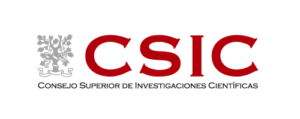The CSIC (Spanish National Research Council) is Spain’s largest public research institution, and ranks third among Europe’s largest research organization. The CSIC is attached to the Spanish Ministry of Economy, Industry and Competitiveness through the State Secretariat for Research, Development and Innovation, and plays a key role in scientific and technological policy in Spain and worldwide. According to its Statute (Article 4), CSIC has 4 main missions:
– to foster multidisciplinary scientific and technological research
– Knowledge transfer to industry and society
– Education and training of scientific and technical staff
– Creation of Technology Based Companies
CSIC has 10.940 employees, including 3.764 researchers. CSIC has 123 Institutes spread across the country and covering different areas of Science and Technology. 70 of them are fully-owned institutes and 53 are Joint Research Units in partnership with other Spanish universities or research institutions. CSIC has also a delegation in Brussels.
CSIC supports research and training across a wide range of knowledge, from the most basic or fundamental aspects of science to the most complex technological developments; from human and social sciences to food science and technology, including biology, biomedicine, physics, chemistry and materials, natural resources and agricultural sciences. As the third largest research organization in Europe, CSIC carries out research in all fields of knowledge, throughout its 123 Institutes distributed in eight areas:
- Humanities and Social Sciences
- Biology and Biomedicine
- Natural Resources
- Agricultural Sciences
- Physical Science and Technologies
- Material Sciences and Technology
- Food Science and Technology
- Chemical Science and Technology
CSIC produces 20% of the national scientific output (more than 12.000 ISI paper in 2014). CSIC remains the leading patent filer among research bodies in Spain with more than 180 patent requests published in 2014.
CSIC has a broad experience in managing large and singular infrastructures. For instance, CSIC provides services to the entire scientific community through management of the Singular Scientific and Technological Infrastructures (ICTS) such as Calar Alto Astronomical Observatory (with MaxPlanck), Doñana Biological Station, European Synchrotron Radiation Facility, Hesperides Ocean Research Vessel, Integrated Micro and Nanoelectronics Clean
Room, Juan Carlos I Antarctic Base, Max Von Laue-Paul Langevin Institute and Sarmiento de Gamboa Ocean Research Vessel. In addition, CSIC has a broad experience in conducting R&D projects funded by national and international public agencies and industry.
CSIC is a major player in the development of the European research area and therefore a significant contributor to the European integration process. Within the 7th Framework Programme CSIC has signed 726 actions (including 70 coordinated by CSIC). As to the number of projects, CSIC is listed the 1st organisation in Spain and the 4th in Europe within the research organizations, with a total FP7 contribution of over 264 million euros (E-
CORDA).
As to the funding obtained by CSIC within each programme, the distribution is People 20%, Cooperation 47%, Capacities 8% and Ideas 25%. Taking into account the research areas, the most relevant ones in terms of funding have been Physical Science and Technology and Biology and Biomedicine. In H2020 (2014-2018) CSIC has obtained 446 projects with a total EU financial contribution of 181 million euros. As E-CORDA points out CSIC is listed the 1st organisation in Spain and the 3rd participant within the research organization by number of projects.
CSIC is a major player in the ERC programme with a total of 87 projects signed as Host Institution in all areas of knowledge. CSIC is also an active member in Knowledge and Innovation Communities (KIC), such as Raw Materials and Food of the European Institute for Innovation and Technology (EIT).

